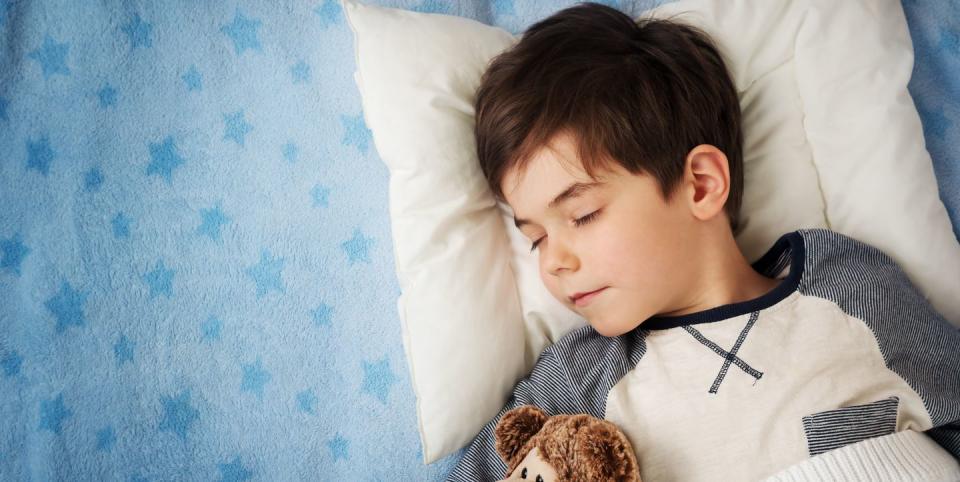This Bedtime Chart Has Parents All Riled Up on Facebook

With summer winding down, most parents can't wait for school — and regular bedtimes — to start back up. But when it comes to setting an exact time to for lights out, they couldn't agree less. A Facebook post about suggested bedtimes has moms and dads up in arms as they argue for earlier, later or no guidelines at all.
The simple chart from the blog Mommy Moment proposes when to tuck in kiddos based on their ages, starting at 7 p.m. for 2-year-olds and then increasing 15 minutes with every year of age, up to 11 p.m. for 18-year-olds.
But not everyone agrees. "I think this chart is ridiculous," one person responded. "11 p.m. is not an appropriate bedtime for anyone at any age. The latest bedtime that I think is appropriate (for normal days, not on holidays or special days/nights) is probably 9:30 p.m."
While earlier bedtimes sound great to most of us, other found the suggestions completely unrealistic in terms of how long a child will actually stay asleep. "Nope. My kid is 4, almost 5, and she goes to bed at 9:30 p.m.," another mom shared. "She loves sleep but she won't sleep long enough. If I want to get up any time later than 6 a.m., she has to go to bed at 9 p.m."
So what do the experts say about the best time to hit the hay? It depends, based not only on your age but also on what time you get up. The Centers for Disease Control (CDC), American Academy of Sleep Medicine (AASM) and American Academy of Pediatrics (AAP) all agree on the following ranges for the total amount of sleep per day:
Infants (4 to 12 months): 12 to 16 hours (including naps)
Toddlers (1 to 2 years): 11 to 14 hours (including naps)
Preschoolers (3 to 5 years): 10 to 13 hours (including naps)
Gradeschoolers (6 to 12 years): 9 to 12 hours
Teens (13 to 18 years): 8 to 10 hours
That means if your high schooler's alarm goes off at 6:30 a.m. for a 7:30 a.m. start time, he need to fall asleep by 10:30 p.m. or earlier. Toddlers that get up by 7 a.m. could go to bed at 8 p.m., but if they're still taking an afternoon nap, then you can push back your evening routine.
While it sounds like a lot, getting enough sleep can make a huge difference in your child's mental and physical health. Deprivation can not only lead to irritability and general grumpiness, but also difficulty concentrating, hypertension, obesity, headaches and depression, according to the AAP. On the flip side, getting enough rest contributes to a healthier immune system, better school performance, behavior, memory and mental health — so don't shortchange the power of extra z's for your kid, or you.
Still worried about getting your kids to go to bed earlier? The AAP recommends the following routine: brush, book, bed. A consistent schedule — plus daily physical activity and less screen time — will make it easier for children to fall asleep faster, meaning parents can get their pajamas on sooner too. Now that's a win-win.
You Might Also Like

